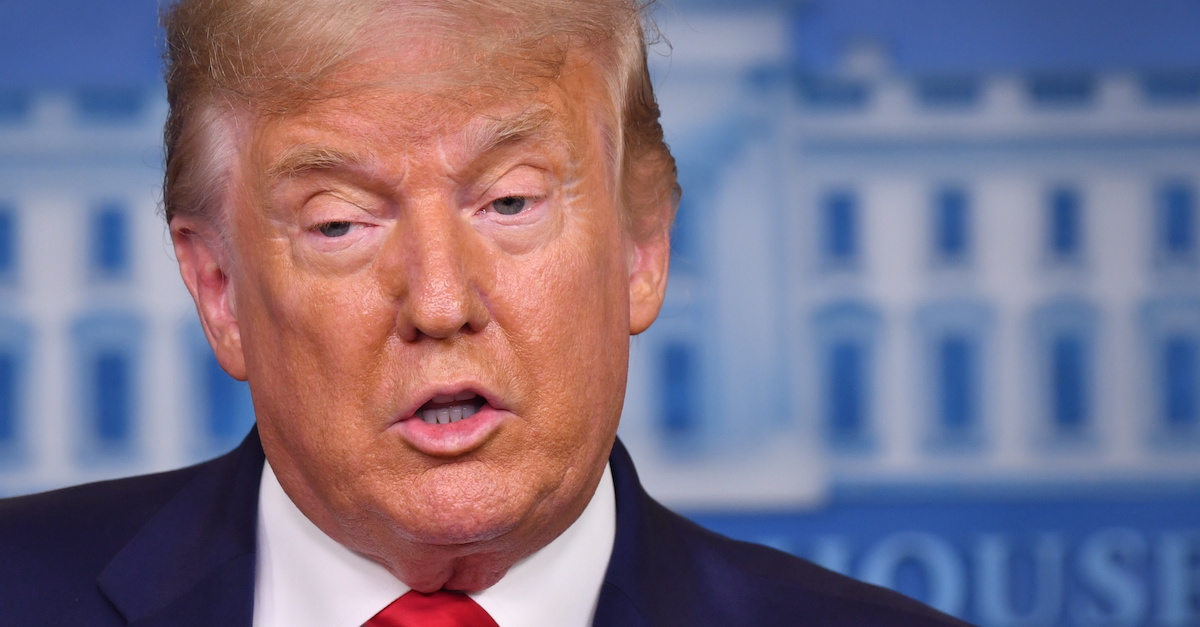
A coalition of non-profit organizations on Thursday filed a lawsuit challenging the Trump administration’s executive order targeting social media companies’ legal protections after they began fact-checking the president’s false and misleading posts.
President Donald Trump issued his “Executive Order on Preventing Online Censorship” (#13925) in May, just days after Twitter took the unprecedented step of flagging Trump’s false claims about mail-in voting. The order aimed to scale back social media companies’ legal protections under Section 230 of the Communications Decency Act, a law that shields internet companies from liability for content posted by users online.
The suit was filed in U.S. District Court in Northern California by groups Rock the Vote, Voto Latino, Common Cause, Free Press, and Maplight. The basis of the lawsuit? That the government’s interference in how the companies operate violates the First Amendment rights of the media platforms as well as its users.
“Online platforms such as Twitter, Facebook, and Instagram (all targeted by name in the Executive Order) have First Amendment rights to ensure that accurate information — including about how to register to vote and successfully cast a ballot by Election Day — is not undermined by misinformation on their platforms,” the lawsuit stated. “Specifically, the First Amendment protects a speaker’s ‘expression of editorial opinion on matters of public importance,’ which ‘is entitled to the most exacting degree of First Amendment protection.’”
Plaintiffs also argue that the executive order violates the constitutional rights of the platforms’ user base – of which all plaintiffs are included – by impeding their ability to receive and advocate for accurate information online.
“The Executive Order presents online platforms with an untenable choice: either let President Trump and others post lies without any context or fact-checking, or face the prospect of losing Section 230’s protections, which immunize online services from liability based on the content their users post, and specifically protect their ability to curate content broadly,” plaintiffs claimed.
As the November election approaches, the social media companies at the heart of the litigation have been under tremendous pressure to prevent President Trump from spreading false and misleading information about mail-in voting, which he’s repeatedly claimed – without any supporting evidence – would lead to “the most rigged election in our nation’s history.”
“Because of MAIL-IN BALLOTS, 2020 will be the most RIGGED Election in our nation’s history – unless this stupidity is ended. We voted during World War One & World War Two with no problem, but now they are using Covid in order to cheat by using Mail-Ins!” Trump tweeted in June.
The president and many of his closest advisors, however, have and plan to continue voting by mail. They have attempted to emphasized the distinction between mail-in voting and universal mail-in voting.
“Voters have a constitutional right to receive accurate information about voting alternatives without government interference, especially from a self-interested President who is lying to gain an advantage in the upcoming election. So when Trump retaliates against private social media companies for fact-checking his lies, it’s not only a First Amendment violation—it’s the kind of behavior you’d expect to see from a dictator,” said Kristy Parker, counsel with Protect Democracy, one of the groups challenging Trump’s order. “In the midst of a global pandemic, when far more voters than usual may opt to vote by mail to protect their personal health, the President’s authoritarian actions are especially egregious.”
Read the full lawsuit below:
Social Media EO Complaint as Filed by Law&Crime on Scribd
[image via by NICHOLAS KAMM/AFP via Getty Images]